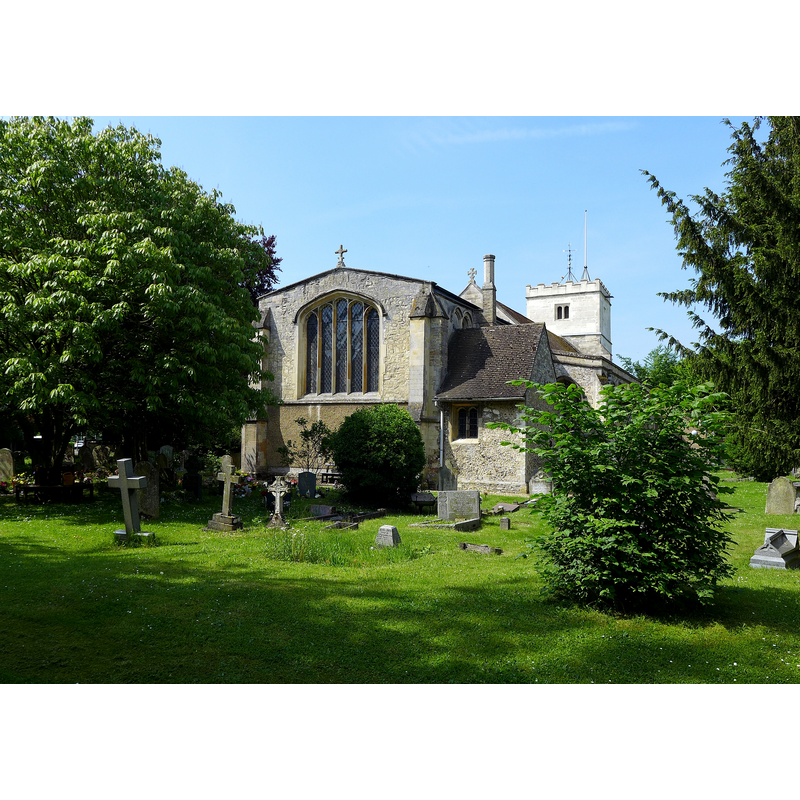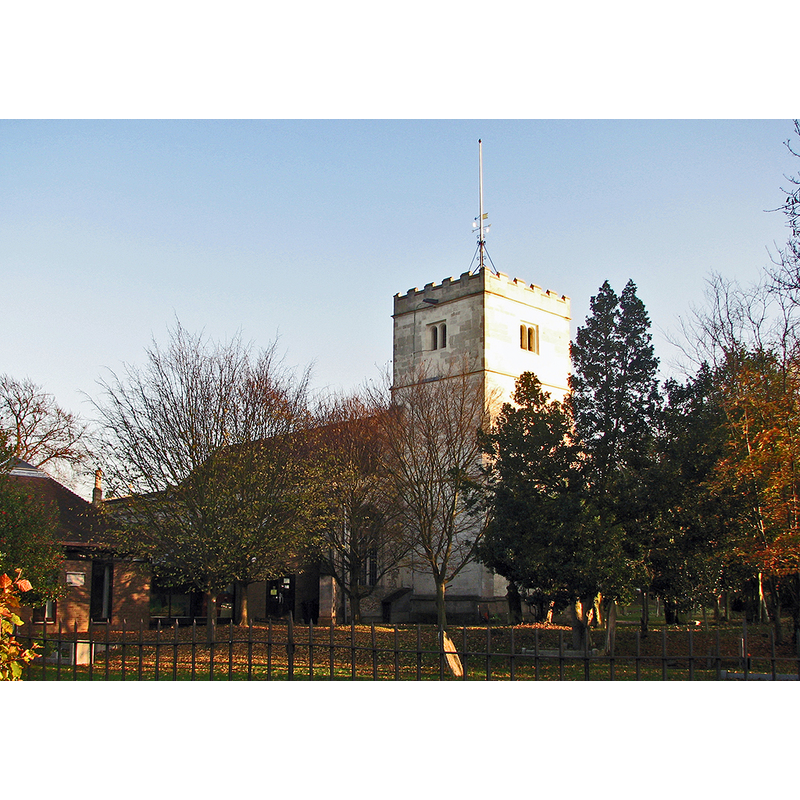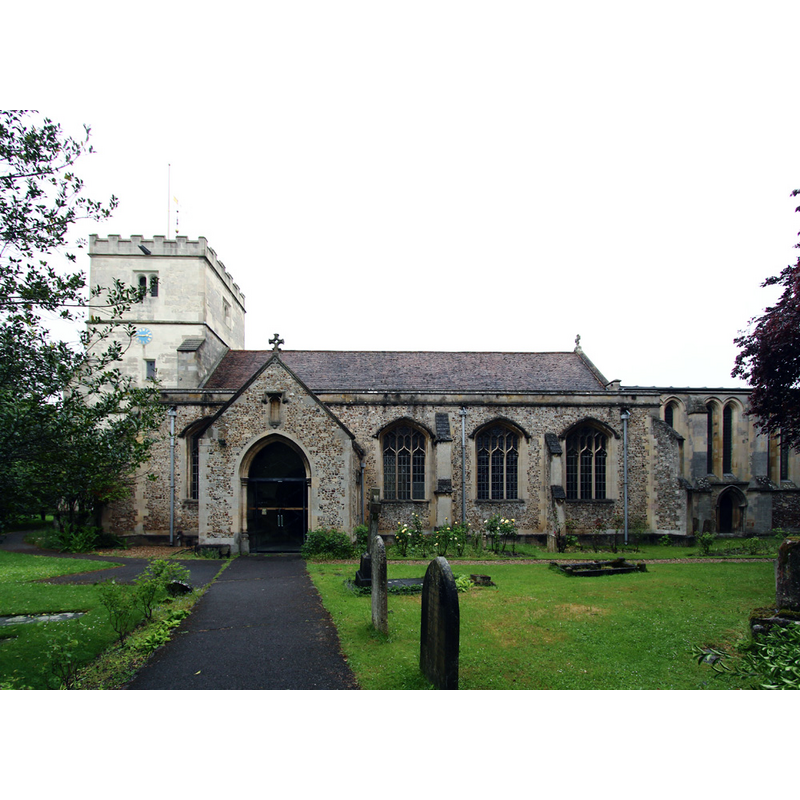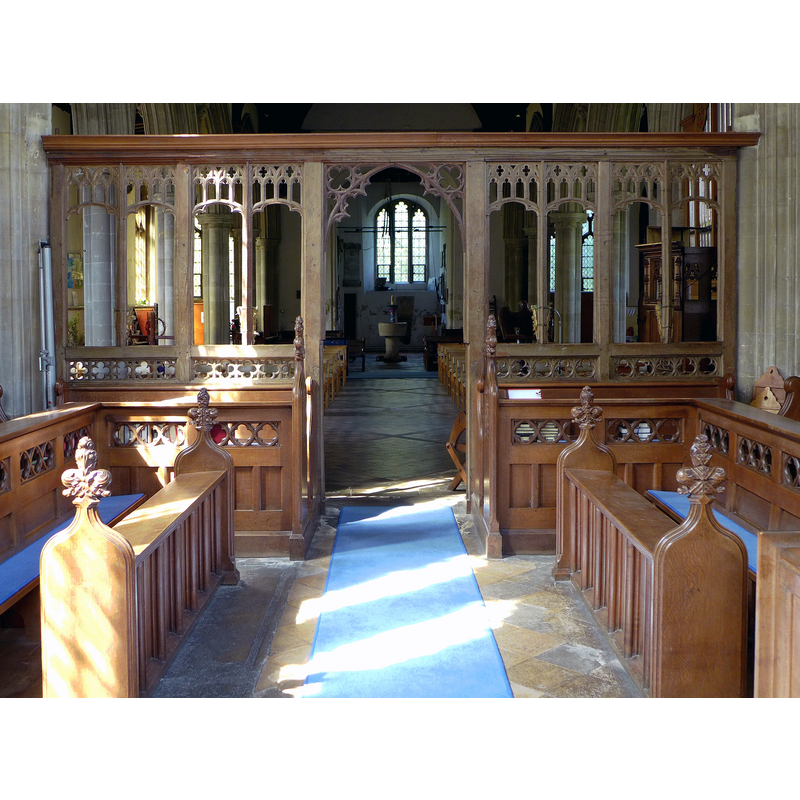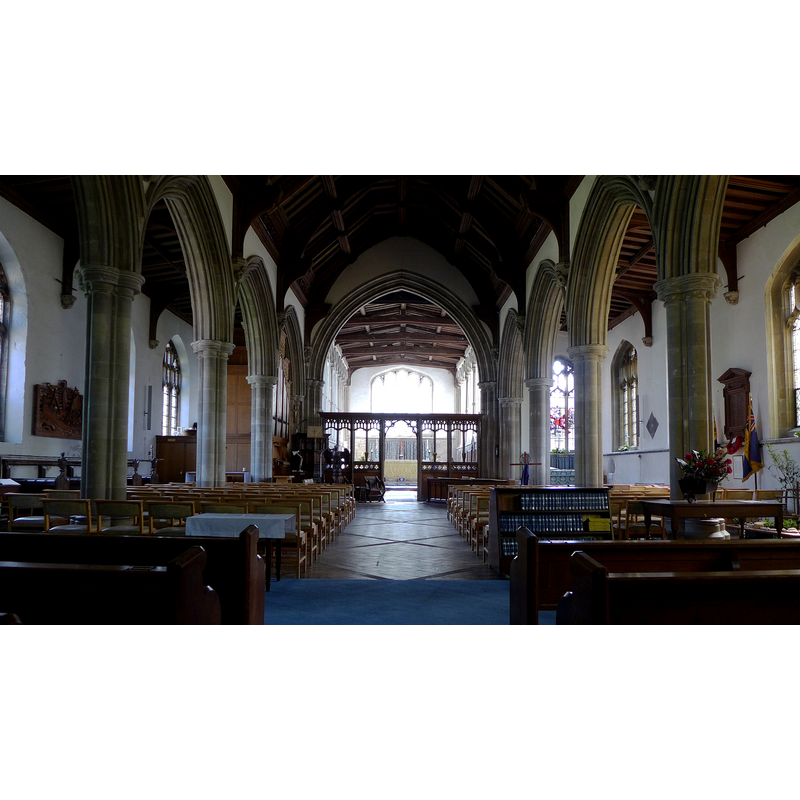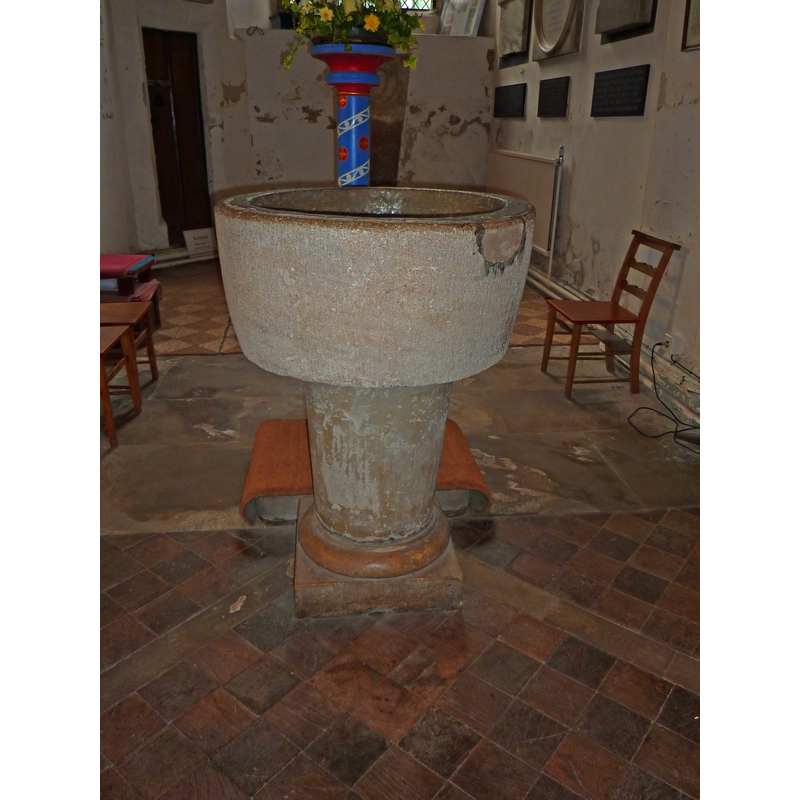Cherry Hinton / Hintone
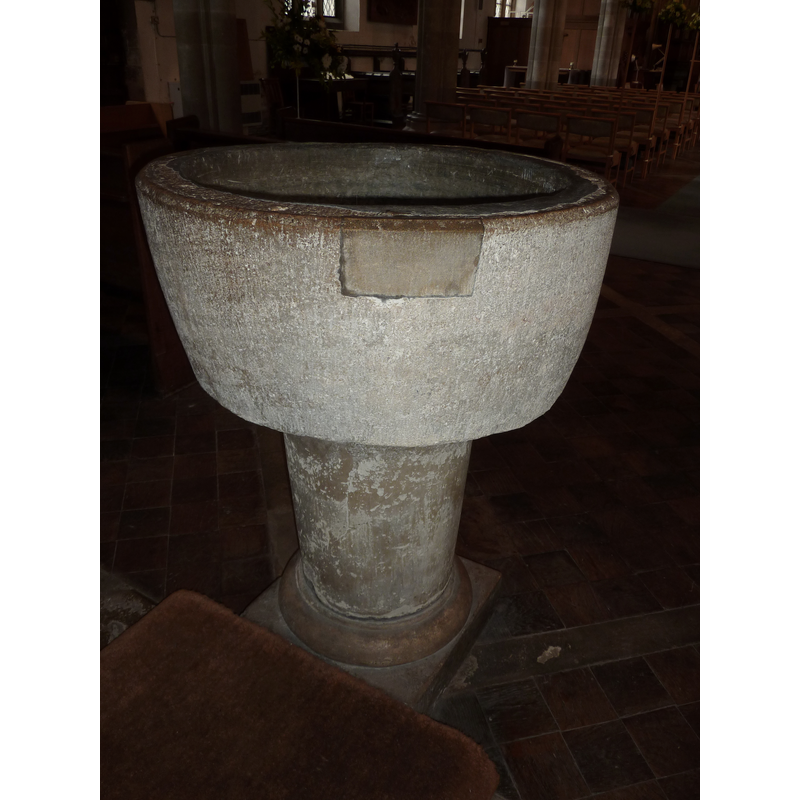
Image copyright © Janice Tostevin, 2010
Standing permission
Results: 8 records
view of font
Scene Description: notice the visible repair patch (another at the opposite end of the basin) and the later pedestal base [cf. Font notes]
Copyright Statement: Image copyright © Janice Tostevin, 2010
Image Source: digital photograph taken 17 July 2010 by Janice Tostevin for NSI
Copyright Instructions: Standing permission
view of church exterior - northeast view
Copyright Statement: Image copyright © Oxfordian Kissuth, 2014
Image Source: digital photograph taken May 2014 by Oxfordian Kissuth [www.geograph.org.uk/photo/4013869] [accessed 19 July 2016)
Copyright Instructions: CC-BY-SA-2.0
view of church exterior - northwest view
Copyright Statement: Image copyright © John Sutton, 2011
Image Source: digital photograph taken 15 November 2011 by John Sutton [www.geograph.org.uk/photo/2694996] [accessed 21 July 2016]
Copyright Instructions: CC-BY-SA-2.0
view of church exterior - south view
Copyright Statement: Image copyright © John Salmon, 2016
Image Source: digital photograph taken 31 May 2016 by John Salmon [www.geograph.org.uk/photo/4994344] [accessed 19 July 2016]
Copyright Instructions: CC-BY-SA-2.0
view of church interior - looking west
Scene Description: all the way from the chancel to the west end of the nave, where the font can be discerned
Copyright Statement: Image copyright © Oxfordian Kissuth, 2014
Image Source: digital photograph taken 7 June 2014 by Oxfordian Kissuth [www.geograph.org.uk/photo/4015435] [accessed 19 July 2016)
Copyright Instructions: CC-BY-SA-2.0
view of church interior - nave - looking east
Copyright Statement: Image copyright © Oxfordian Kissuth, 2014
Image Source: digital photograph taken 7 June 2014 by Oxfordian Kissuth [www.geograph.org.uk/photo/4015445] [accessed 19 July 2016)
Copyright Instructions: CC-BY-SA-2.0
view of font in context
view of church interior - plan
Copyright Statement: Image copyright © NOF Digitise Architecture England Consortium, 2003
Image Source: in Church Plans Online (published by the NOF Digitise Architecture England Consortium) reproduced in The Corpus of Romanesque Sculpture in Britain and Ireland [http://www.crsbi.ac.uk/ed/ca/chint/index.htm] [accessed 14 October 2007]
Copyright Instructions: PERMISSION NOT AVAILABLE -- IMAGE NOT FOR PUBLIC USE
INFORMATION
Font ID: 01392CHE
Object Type: Baptismal Font1
Font Century and Period/Style: 12th - 13th century [basin only], Transitional / Early English [altered]
Church / Chapel Name: Parish Church of St. Andrew
Font Location in Church: Inside the church, at the W end, beneath the tower
Church Patron Saint(s): St. Andrew
Church Address: 602 Coldham's Lane, Cherry Hinton, Cambridge CB1 3JR
Site Location: Cambridgeshire, East, England, United Kingdom
Directions to Site: Located halfway between Cambridge and Fulbourn, 4 km ESE of the former
Ecclesiastic Region: Diocese of Ely
Historical Region: Hundred of Flendish [Fleamdyke in Domesday]
Additional Comments: altered font / restored font (new base -- replaced in 1811 -- damaged font at the upper rim (staple?)
Font Notes:
Click to view
There is an entry for [Cherry] Hinton [variant spelling] in the Domesday survey [http://opendomesday.org/place/TL4856/cherry-hinton/] [accessed 19 July 2016], but it mentions neither cleric nor church in it. Paley's Guide (1844) reports a "circular and plain" font here. Dated in Cox & Harvey (1907) to the Early English period. Kelly's directory for this county (1929) reports a "plain, circular font on a pedestal". Described in the RCHM (Cambridge, 1959): "cir cular stone bowl with plain tapering sides, late 12th or early 13th-century, on cylindrical stem substituted in 1811 for five small shafts." The Victoria County History (Cambridge and the Isle of Ely, vol. 10, 2002) notes: "There was a parish church by the 12th century […] Although heavily restored in the 19th century, Cherry Hinton is one of the finest and most complete Early English parish churches in the county. […] The earliest features are the later 12thcentury responds of the tower arch, which have small attached shafts with plain capitals on their eastern angles, and the core of the tower which is at a slightly different angle to the rest of the building. […] The font, which has a circular bowl with plain tapering sides, is late 12th- or early 13th-century, and had a five-shafted base until 1811 when the present pedestal was substituted." Described and iIllustrated in the CRSBI (2016): "At W end of nave. A plain circular tub on a modern tapered shaft with a low bulbous base. The basin is circular and lead lined." Described in Cambridgeshire Churches [www.druidic.org/camchurch/] as a baptismal font of the Norman period. The St. Andrew's Parish web site [http://www.ely.anglican.org/parishes/cherry-hinton/history1.html] [accessed 14 October 2007] notes: "the plain circular stone font, which down to the 18th century stood upon five pillars, is of the same period [..] In 1811 the early font, dating probably from the first church, was brought. into use and placed on its present stone pedestal. It appears to have been rescued after having been thrown out. Its five original pillars seem to have been lost beyond recall" [from "The Story of Cherry Hinton Church" by Dr. Alice Parsons, with additional material by The Revd. John Yule and The Revd. Stephen Leeke. All of the information in the history of the Church is copyright 1987 St Andrew's Parochial Church Council."] The basin has repair patches that appear to coincide with the position of the iron staples of the old cover.
Credit and Acknowledgements: We are grateful to Janice Tostevin for her photographs of this font
COORDINATES
UTM: 31U 306845 5786169
Latitude & Longitude (Decimal): 52.192094, 0.174013
Latitude & Longitude (DMS): 52° 11′ 31.54″ N, 0° 10′ 26.45″ E
MEDIUM AND MEASUREMENTS
Material: stone, type unknown
Font Shape: bucket-shaped, mounted
Basin Interior Shape: round
Basin Exterior Shape: round
Drainage System: centre hole in basin
Drainage Notes: lead-lined
Rim Thickness: 8.5 cm [calculated]
Diameter (inside rim): 66 cm*
Diameter (includes rim): 83 cm*
Height of Basin Side: 37 cm*
Notes on Measurements: * CRSBI (2016)
LID INFORMATION
Notes: [cf. FontNotes for note on damage]
REFERENCES
- Victoria County History [online], University of London, 1993-. URL: https://www.british-history.ac.uk.
- Corpus of Romanesque Sculpture in Britain and Ireland, The Corpus of Romanesque Sculpture in Britain and Ireland, The Corpus of Romanesque Sculpture in Britain and Ireland. URL: http://www.crsbi.ac.uk.
- Cox, John Charles, English Church Furniture, New York: E.P. Dutton & Co., 1907, p. 188
- Great Britain. Royal Commission on Historical Monuments (England), An Inventory of the Historical Monuments in the city of Cambridge, London: H.M. Stationary Office, 1959, vol. 2: 289
- Kelly, Kelly's Directory of Cambridgeshire, London: Kelly's Directories Ltd., 1929, [http://www.genuki.org.uk/big/eng/CAM/CherryHinton/] [accessed 14 October 2007]
- Paley, Frederick Apthorp, The Ecclesiologist's guide to the churches within a circuit of seven miles round Cambridge, with introductory remarks, London; Cambridge: J. van Voorst; Metcalfe and Palmer, 1844, p. 42
